Chris Morgan
Host, "The Wild"
About
Chris Morgan is a British-American ecologist, conservationist, filmmaker, TV host and podcaster. His stories from six continents have reached hundreds of millions of people worldwide as part of his mission to connect listeners to nature and to help conserve our beautiful planet.
For over thirty years his ecology and conservation work has focused on bears and other large carnivores worldwide, from the Rockies to Pakistan, and Spain to Ecuador. He emigrated to the US from the UK in 1997 and established Chris Morgan Wildlife for his wildlife research and environmental education work. In 2000, he co-founded the award-winning community-based education program, the Grizzly Bear Outreach Project (GBOP; now Western Wildlife Outreach, WWO), which was designed to bring scientifically credible information about grizzly bears and restoration to local communities of the North Cascades in Washington State.
Through his work as a wilderness guide, he has escorted hundreds of people into wild locations around the world from the Arctic to Antarctica, to share the wonder of nature, and trigger conservation initiatives.
He is the co-founder of Wildlife Media, the non-profit organization that produced BEARTREK, a feature-length documentary (premiered in 2018) that follows Chris’ journey by motorcycle to Alaska, Peru, the Canadian north, and Borneo. The film’s campaign has generated support and exposure for critical bear conservation projects in these areas. Wildlife Media is a proud sponsor of THE WILD. Chris co-created THE WILD podcast with KUOW in 2019 and loves the craft of creating and voicing immersive audio stories that bring people back to nature through their ears, hearts, and minds.
Podcasts
Stories
-
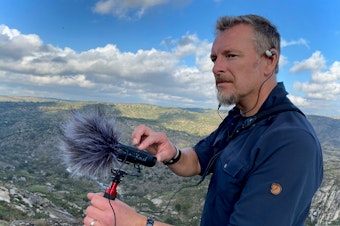
A short check-in from Chris
The new season kicks off in March
-
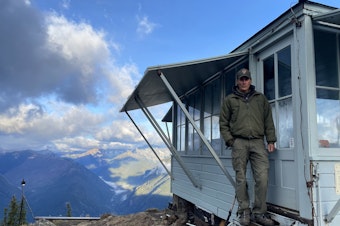
Evolving ecology: Wisdom from 30 years as a fire lookout
Jim Henterly spent more than 70 days alone at the Desolation Peak Fire Lookout station last summer. He was there to keep an eye out for smoke plumes but also so much more.
-
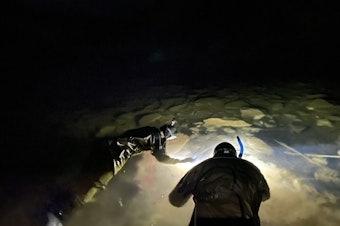
Make it like it was: Clean, cold and flowing Gold Creek of Snoqualmie Pass
We can’t reset the clock on all the changes we’ve made to our natural ecosystems, but when we can, life is ready to thrive again.
-
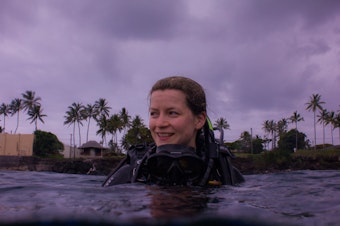
Two-Eyed Seeing as a way to decolonize western science
There’s a way to understand nature through both the perspectives of indigenous knowledge and western science alongside each other. It’s a concept known as “two eyed seeing”.
-
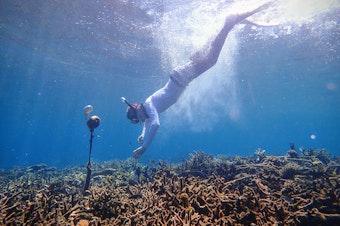
Coral reefs: a biological symphony being silenced
A common misunderstanding about the sea is that it is silent down there, a quiet world beneath the waves, but it actually couldn't be further from the truth. The coral reef is the noisiest ecosystem in the sea.
-
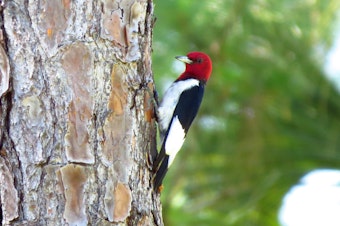
Hard Knocks: Lessons from the woodpecker
Woodpeckers will peck at a tree up to 12,000 times a day and just one woodpecker peck produces about 15 times the force needed to give a human a concussion. So, how do woodpeckers bang their heads so much, and so hard and not come away with brain damage?
-
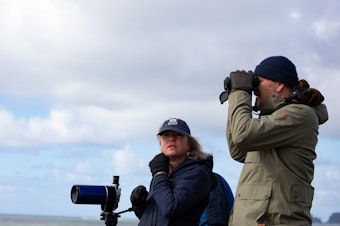
Sea Otters are both adorable and valuable fighters in the battle against climate change
Chris Morgan, host of KUOW's "The Wild" podcast, talked to Libby Denkmann about the otters' rescue from nuclear testing in Alaska in the 60's, and the part they play in combatting climate change.
-
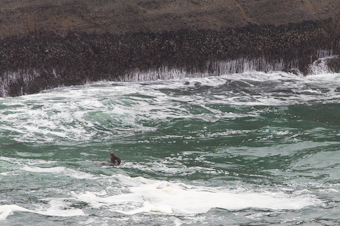
Nuclear sea otters: A wildlife refugee story
Fifty years later, we checked in on a rescue mission to save sea otters from nuclear annihilation and recolonize them along the west coast of North America.
-
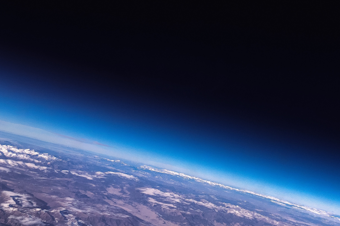
Happy 46th Birthday! An Earth Day message from Chris
An Earth Day message from Chris
-
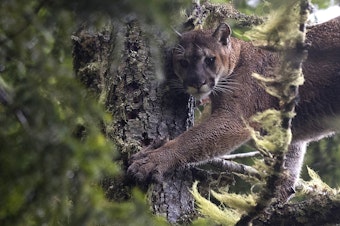
The Cougar Conundrum
How we are sharing the world with a successful predator
